

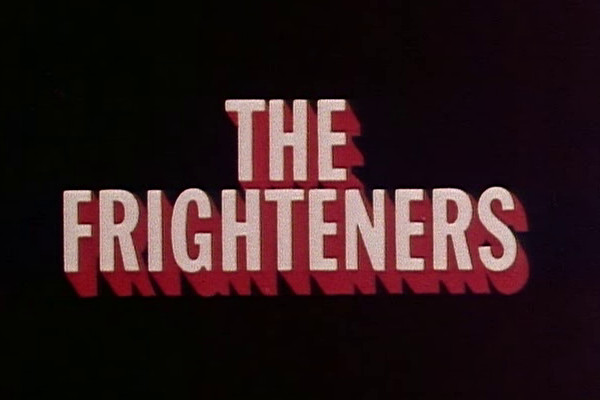
A DVD of the entire 13-episode series is available from Amazon. Please join me in discovering this forgotten series, ranking the 13 episodes from worst to best...
Although spoilers are largely avoided, some plot elements are discussed as part of this article... some of the images from this post-watershed series may also be unsuitable for younger readers.
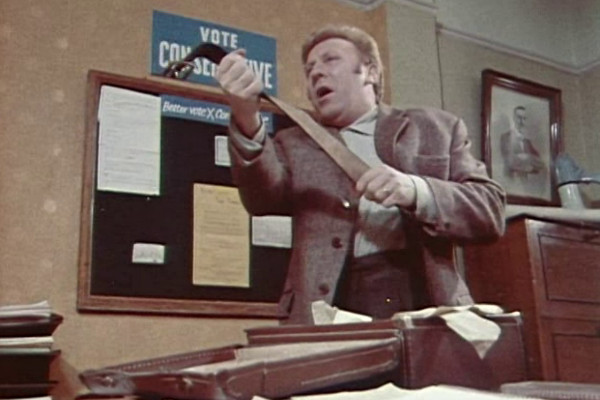
Although it has a theme made up of abstract noise rather than music, and an opening cartoon illustration which seems to nod towards the work of Munch, The Frighteners isn't, despite its title, a horror show in the strictest sense. Rather, the "horror" is urban horror, and the "frighteners" relating more to its use for gang intimidation than actual supernatural fear. The show is a bit like an early Tales of the Unexpected, only shot on film, of a far higher acting/performance quality, and with most of the "twists" being people being stabbed by chisels.
Although the entries from 1-7 are significantly higher in quality than the entries on the page here, there are no entries that are actually outright bad. This one concerns a father (Joe Lynch, the narrator of Chorlton and the Wheelies) confronting a Conversative MP, demanding justice for his son who died while in care. As the series was shot and screened under the Heath administration, this can be seen as one of the more political episodes, even if it doesn't quite come off as well as it should.
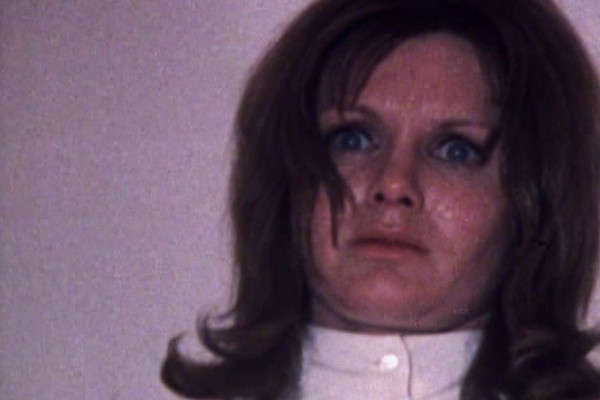
The Frighteners is an anthology show in perhaps its purest form - while the production personnel remain the same, the 13 episodes are the product of 13 separate writers and just 10 directors. The Night of the Stag sees the sole female voice as novelist Andrea Newman (A Bouquet of Barbed Wire) crafts a tale of woman scorned. Although it's worth bearing in mind that this was aired 45 years ago, and so times would be very different, it's something of a shame that it's the kind of play that, if written by a man, would be regarded as a little sexist.
Jennie Linden (Known for Women in Love, or, for this site's demographic, Dr. Who and the Daleks) plays Ginny, a woman who approaches her ex lover on the eve of his marriage. The plot takes predictable turns, and Linden's performance, while playing someone with mental health issues, is quite theatrical. While a fine series, populated by some very strong actors, The Frighteners does hark back to a more stage-bound/middle class style of acting, which is a favourite style of this site, but can, on occasion, as here, hint too strongly at artifice.
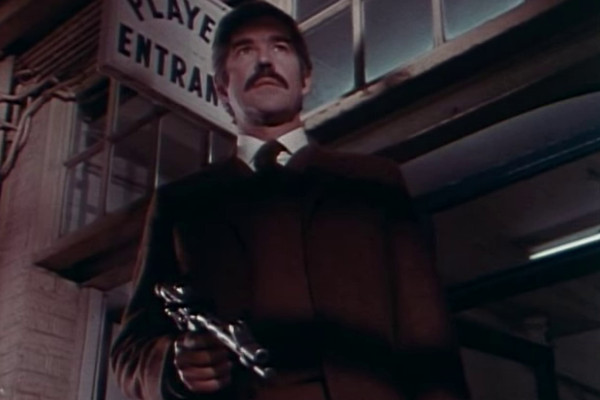
The novelist and novelisation writer John Burke was instrumental in the development of the series. His short story collection, "Tales of Unease", was made into a six-part ITV series which aired in 1970. Many of the same production crew created The Frighteners, with Burke on board for the entire 13-episode series as script editor. Those who are into incredibly anal trivia about cult TV (and if you're not, why are you reading The Anorak Zone?) may care to know that this single episode sees him credited not as script editor, but as "story editor".
Perhaps unusually for a show of this nature, it avoids a uniform presence to its titles. Each closing credit sequence has a different feel, with eerie, disassociated tunes played out over different fonts and images. Some of them end with what sounds like a cacophony of sound, more Karlheinz Stockhausen than conventional television. Firing Squad has more of a regular closing theme than most, but set over militarised credits.
The serial features Rudolph Walker and Earl Cameron playing two African militants the same year they would do exactly the same thing in forgotten cult show Spyder's Web. Yet the main guest star is Edward Brayshaw, still nearer to having been The War Chief in Doctor Who than he was to being Harold Meaker in Rentaghost. The tale of criminal activities has some appropriate twists and turns, though when it ends, you may wonder what really was the point of it all...
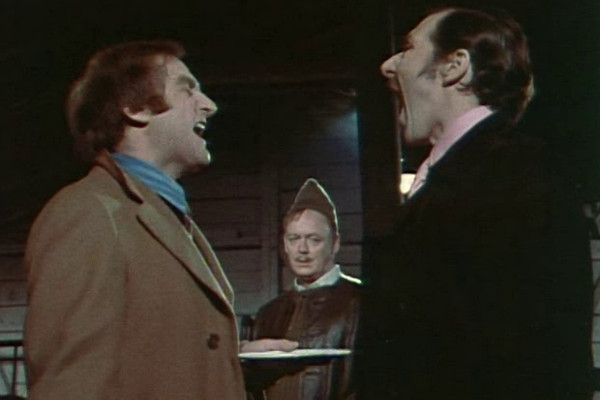
The standard of British television in the modern age is a topic that can be much debated. The Anorak Zone still admires much of modern television, though it's notable that a lot of current British television adheres to a slicker, more visual, "Americanised" model which it cannot hope to successfully emulate. Much of UK TV of yesteryear adopted the model of "theatre on the small screen", which arguably suited it better, or, at least, was an area in which it could be more successful.
Old Comrades is basically a three-man stage play on television, with John Thaw and George Innes playing ex soldiers who served under retired Major Rutherford (Robert Urquhart). The script touches on class warfare and resentment... familiar themes of the programme, where years-old bitterness is meted out. While a nice air of menace is built up in this one, it does pull back from anything truly nasty, Robert Holles's script opting for threat rather than carried-out karmic redemption. In this way, then, it's very much "the frighteners" of the title, even if Rutherford refuses to yield.
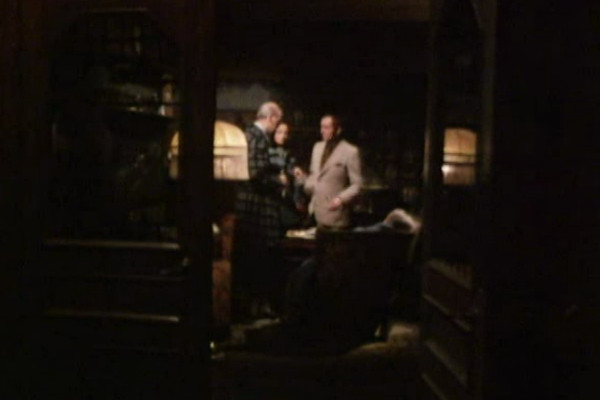
Bed and Breakfast starts out as a disturbing tale, almost an early version of Michael Haneke's 1997 Funny Games, where a couple use illicit means to enter an elderly couple's house and begin to take over. Fixing a fake bed and breakfast sign near the property, they use emotional blackmail to engender a room for the night, and begin to dominate the elderly, vulnerable people in their own house. Things do take a less-sinister turn, as a series of revelations makes the trespassers ultimately sympathetic, after a fashion, but the various plot twists keep this one involving. As the vast majority of these stories are "twist" based, if only lightly, it's debatable how well some of them would stand up to repeat viewings, but for a one-time experience, Bed and Breakfast does its job...
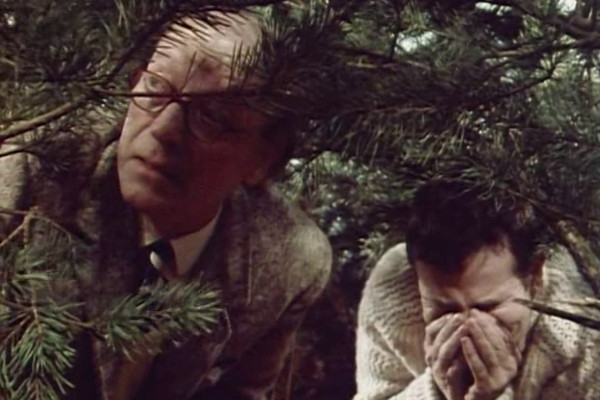
Executive Producer Peter Wildeblood led an interesting life, being sentenced to 18 months imprisonment for intent towards homosexual acts in the 1950s. His book on the subject, "Against the Law", was regarded as groundbreaking on the subject, as was its follow-up, "A Way of Life". Both books and Wildeblood's stand against such prejudices were regarded as instrumental in leading to a reformation of the law regarding homosexuality.
This tale by writer Douglas Livingstone is particularly relevant to Wildeblood's cause, as a care worker takes three elderly men out for a day trip, only for them to subject him to taunts and bullying due to his sexuality, with tragic consequences. The Frighteners was a series that had some well-known actors appearing in its run, even if all of them were not so well known at the time. The likes of John Thaw, Tom Bell, Ian Hendry, Earl Cameron, Patience Collier and Michael Craig all appear throughout the run, plus many more. This particular episode sees the care worker brought to life by Ian Holm in one of his earlier roles.